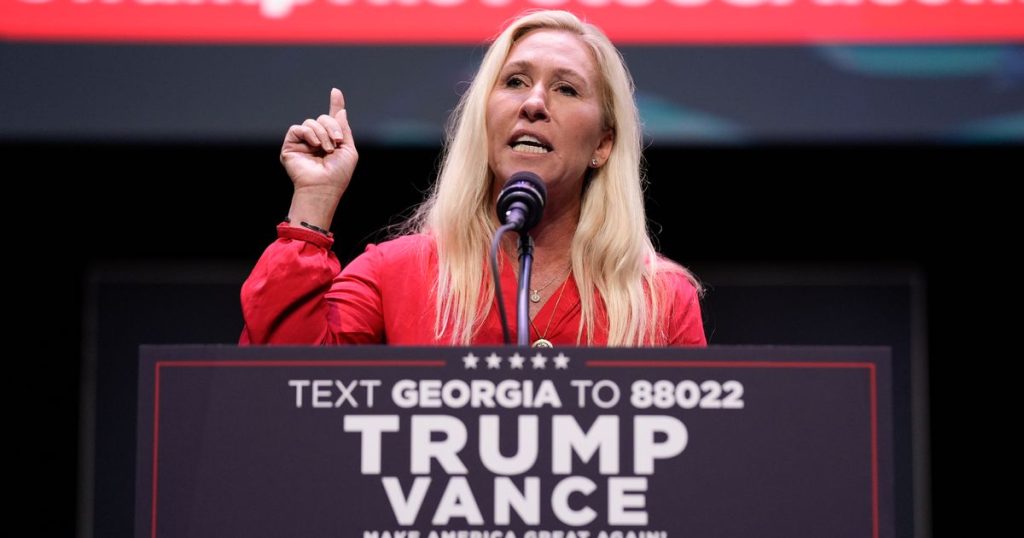Rep. Marjorie Taylor Greene (R-Ga.) made headlines by pushing a conspiracy theory about Hurricane Helene, claiming that weather control is possible and insinuating that Democrats were behind the storm to influence the upcoming elections. Greene’s tweets implied that the storm was manipulated to impact specific regions based on political affiliations. The conspiracy theory was fueled by a map created by a conspiracy theorist with a large following on social media, suggesting a deliberate targeting of certain areas by Hurricane Helene. The baseless claims made by Greene and the conspiracy theorist were met with criticism and calls to stop spreading false information.
Disinformation peddlers have often focused on cloud-seeding, a technique used to manipulate clouds for increased rainfall, as a basis for weather control theories. However, the theory propagated by Greene and others suggesting that a storm like Hurricane Helene could be artificially directed to affect certain regions for political purposes is unsubstantiated and lacks factual basis. Former President Donald Trump also made false claims about the storm, insinuating that aid was being withheld from Republican areas and spreading misinformation about the response to the disaster. State officials, including some from Greene’s own party, have urged people to refrain from sharing conspiracy theories and misinformation related to the storm and its aftermath.
Despite her history of promoting baseless conspiracy theories, including the QAnon conspiracy theory, and her association with extremist groups, Marjorie Taylor Greene has continued to gain prominence within the Republican Party. Elected to office in 2020, Greene has consistently spread false information and inflammatory rhetoric. However, her participation in white supremacist events and support for dangerous conspiracy theories have drawn criticism from both sides of the political spectrum. Despite her controversial background, Greene currently holds a position on the House committee on homeland security and has spoken at high-profile events within the Republican Party.
The conspiracy theory surrounding Hurricane Helene and alleged weather manipulation has origins in a far-right media ecosystem that obsesses over the government’s purported ability to control the weather for malicious reasons. The theory has gained traction on social media platforms like Twitter, where Greene posted her controversial statements. The spread of misinformation and conspiracy theories online has become increasingly problematic, leading to calls for greater scrutiny of content shared by public figures and officials. The influence of individuals like Greene, who hold positions of power, in promoting unsupported claims can have real-world consequences.
The impact of conspiracy theories like the one surrounding Hurricane Helene extends beyond divisive political narratives and into the realm of public safety and disaster response. Misinformation can lead to confusion and mistrust in the wake of natural disasters, hindering relief efforts and causing harm to affected communities. Efforts to combat misinformation and promote accurate information in times of crisis are essential to ensuring a coordinated and effective response to disasters. By addressing false narratives and holding those who spread them accountable, it may be possible to mitigate the negative effects of conspiracy theories on communities in need of assistance.
In conclusion, the conspiracy theory perpetuated by Rep. Marjorie Taylor Greene about Hurricane Helene and weather manipulation is a baseless and harmful narrative that has gained traction in online spaces. The dissemination of misinformation by public figures like Greene can have serious consequences for public safety, disaster response, and political discourse. Addressing the spread of false information and conspiracy theories is crucial to maintaining trust in institutions, promoting transparency, and safeguarding communities from the harmful effects of misinformation. As the impact of social media on public discourse continues to be scrutinized, confronting the spread of unsubstantiated claims and holding individuals accountable for promoting false narratives remains a pressing challenge for society as a whole.








